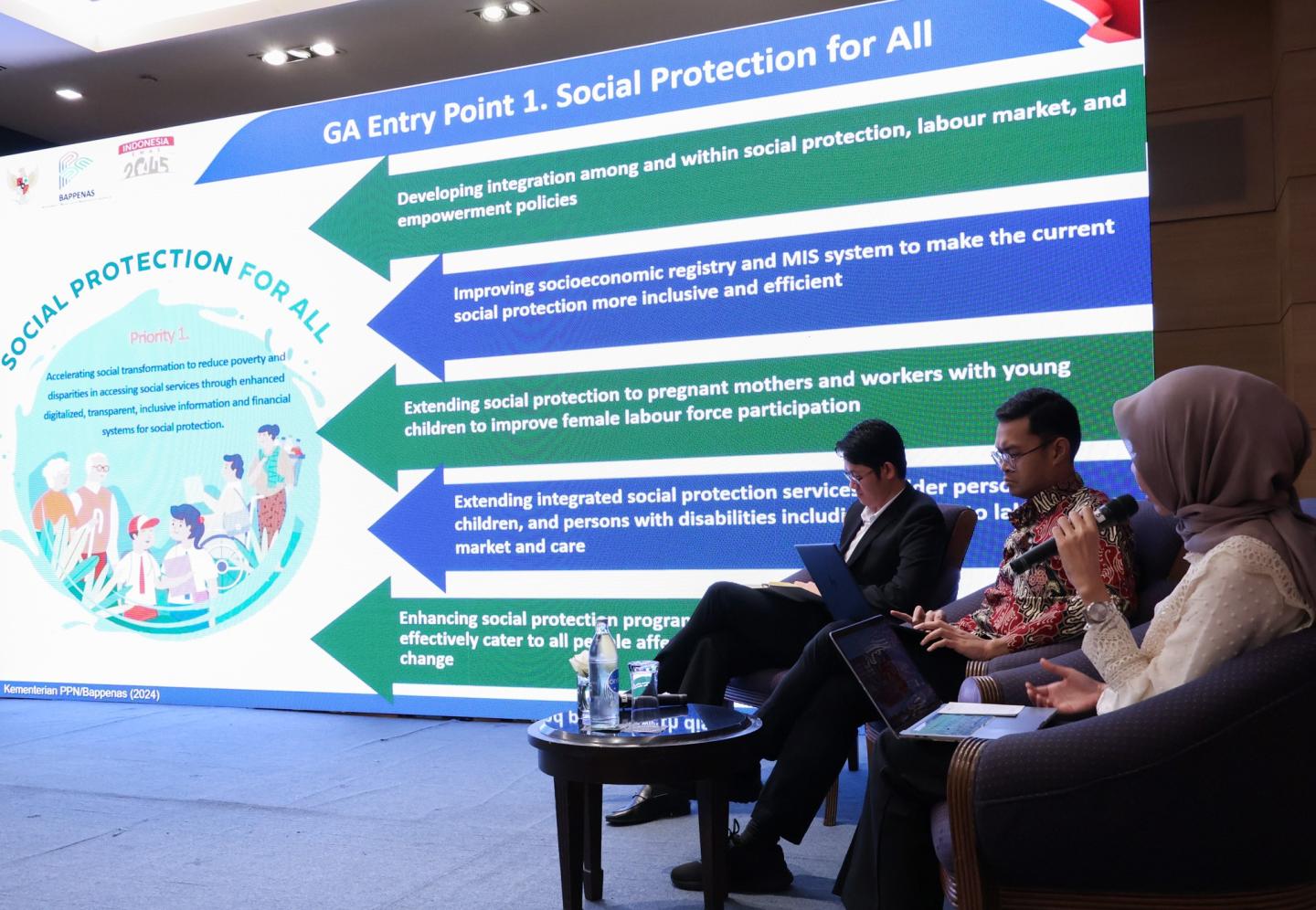A recent Regional Policy Dialogue on Policy Innovations for the Digital Transitions in the Labour Market, held on September 25 and 26 in Bangkok, spotlighted the Global Accelerator on Jobs and Social Protection for Just Transitions as a key initiative for navigating digital transitions in the labour market
The event was an initiative of the International Labour Organization (ILO) with the support of the Ministry of Human Resources and Social Security (MOHRSS) of the People's Republic of China, to showcase how countries are embracing digital transformation while prioritizing inclusive growth and social protection under the Global Accelerator. The Regional Policy dialogue brought together senior policymakers from Southeast Asia, alongside representatives from China’s Ministry of Human Resources and Social Security, to discuss strategies and good practices for fostering job creation, social protection and digital transformation based on the principles of South-South cooperation.
During a notable session, representatives of Cambodia, Indonesia and the Philippines shared their experience and strategies to implement the Global Accelerator in their countries, highlighting the measures to address the challenges posed by the digital transition in the labour market. Mr. Niroth Chhy from Cambodia’s Ministry of Economy and Finance highlighted that despite facing different challenges like a large informal economy, Cambodia is committed to expanding social protection, improving labour market inclusivity, and embracing the digital era.
Furthermore, Mr. Dinar Dana Kharisma, from Indonesia’s National Development Planning Agency, presented the national roadmaps for the implementation of the Global Accelerator underscoring how the initiative is contributing to just transitions, decent jobs and universal social protection. Indonesia’s roadmap focuses on closing gaps, preparing for an aging population, and boosting digital literacy among women and youth. The country’s efforts to enhance social protection and develop the care economy are central to its future strategy.
The session also included reflections from government representatives of the Philippines and from workers’ and employers' organizations across Southeast Asia regarding the engagement process with the Global Accelerator and the importance of multi-stakeholder participation, tripartite engagements, and enhancing institutional capacity to fully implement and monitor the national roadmaps for implementation.
Participants also recognized the need to tackle the issue of informality within the context of the digital transition which presents both challenges and opportunities to support formalization. The discussions highlighted the potential of the Accelerator to facilitate the formalization of work and enhance social protections as digital infrastructure evolves. These challenges and opportunities include the rise of remote and digital work, the increased adoption of digital infrastructure, use of big data and digital payment.
In the context of fast-evolving labour markets and through South-South and Triangular Cooperation approaches, the event showcased how peer learning among Global Accelerator pathfinder countries that face similar challenges can be leveraged to support inclusive digital transitions which leave no one behind.
